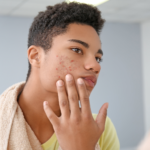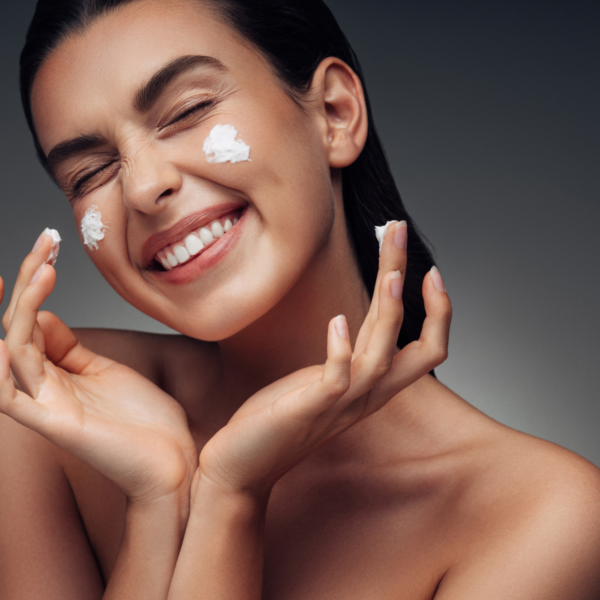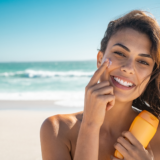Non c’è da stupirsi che il sole sia parte integrante della nostra vita e che i raggi solari ci forniscano la vitamina D, un elemento super indispensabile per il nostro organismo. Ci aiuta a prevenire numerosi problemi legati alla pelle. Quando riceve la giusta quantità di vitamina D, la nostra pelle risplende e rimane radiosa per sempre. Detto questo, esiste qualcosa chiamato raggi UV, le cui radiazioni sono ormai amiche della nostra pelle. Inoltre, con l’avvento della riduzione dello strato di ozono e dei cambiamenti climatici, questi raggi UV stanno creando enormi problemi sia alla pelle che alla salute. Quali sono le soluzioni? Ce ne sono molte, ma questo articolo non riguarda le soluzioni da attuare per il cambiamento climatico o l’assottigliamento dello strato di ozono; forse ne parleremo più avanti. Tuttavia, in questo articolo vorrei che tutti voi sapeste che il termine “REEF” è ampiamente utilizzato nelle creme solari e nei prodotti per la cura della pelle.
Cosa si intende per “REEF free”?
Il termine “reef safe” significa che le creme solari contengono solo ingredienti minerali che bloccano i raggi UV, come l’ossido e il biossido di titanio. Sia le nanoparticelle (piccole particelle) che i tradizionali filtri solari all’ossido di zinco sono sicuri e convincenti per la pelle. Quindi, con questi due elementi, la vostra protezione solare sarà considerata sicura per la barriera corallina. L’unica differenza è la sensazione cosmetica sulla pelle; quindi, si può scegliere tranquillamente un’opzione a base minerale.
Vi racconto un estratto di uno studio condotto da scienziati per capire l’impatto delle creme solari sulla vita oceanica. Negli ultimi dieci anni, molti sperimentatori hanno esaminato le possibili implicazioni dei componenti delle creme solari sulle barriere coralline, sulle piante acquatiche, sui pesci e su altre forme di vita marina. Questo insieme di indagini – sebbene non ancora definitive – ha sollevato il timore che alcuni ingredienti delle creme solari possano causare danni.
Per mantenere la vita oceanica sana e gioiosa, la chiave è trovare un SPF che utilizzi filtri fisici UVA e UVB (rispetto a quelli chimici che sono stati collegati al deterioramento delle barriere coralline). Per trovarli basta sfogliare il tubetto di SPF e cercare gli ingredienti attivi: ossido di zinco e biossido di titanio. Questi ingredienti formano un vero e proprio blocco fisico che impedisce alla pelle di assorbire i raggi (mentre i filtri chimici assorbono i raggi UV e li trasformano in calore rilasciato dalla pelle).
Cosa significa veramente “Reef Safe”?
Non c’è un criterio di riferimento o un significato regolamentato dietro a “sicuro per la barriera corallina” o “amico della barriera corallina”. Alcune creme solari con queste indicazioni non contengono né ossibenzone né ottinoxato. Altri contengono solo minerali (biossido di titanio e ossido di zinco) o includono un mix di ingredienti minerali e chimici. La definizione di ciò che il produttore potrebbe intendere per “sicuro per la barriera corallina” continua ad ampliarsi e a ingannare i clienti. I ricercatori suggeriscono che affidarsi ciecamente ai produttori può anche dare un falso senso di protezione. Non sappiamo ancora se i prodotti etichettati come “sicuri per la barriera corallina” siano sicuri per la pelle e per i nostri oceani.
Proteggere la pelle e l’oceano In attesa che la scienza raccolga dati più precisi, la soluzione non è ignorare i potenziali danni agli oceani o rinunciare alla protezione solare. Al contrario, è possibile trovare un’armonia che protegga la pelle e possibilmente aiuti l’ambiente. La prima cosa da fare è capire che la protezione solare è un pacchetto completo, non solo l’applicazione della crema solare. Ad esempio, possiamo indossare indumenti a collo alto e a maniche lunghe invece del solo costume da bagno. In questo modo si può ridurre notevolmente la quantità di crema solare da applicare. Questo può essere utile dal punto di vista ambientale, ma c’è una guida da controllare quando si acquista la protezione solare e quali caratteristiche deve avere o meno. Condividerò i dettagli nel prossimo articolo – fino ad allora, rimanete radiose e in salute.
DO WE EVEN NEED A CREAM OR A SERUM OR BOTH ?
Well, many people ask me what is difference between the two or if there is even any. Well …there is and a BIG one!
The biggest difference between a serum and a cream is the formulation and what they are meant for – the Creams are meant to treat the skin type whereas serums are to treat the skin concern.
Creams, lotions and emulsion basically composed of WATER +FATS +ACTIVE INGREDIENTS ( and a bunch of others ingredients that most of the times are REALLY bad for your skin and heath but let’s leave for another blog )dispersed in a solution . The are made of bigger molecules compare to serums and their the main goal of creams is to replenish the skin barrier to protect the outer layer of the skin, which is the upper layer of the epidermis.
SKIN CARE EXAMPLES from site:
EVOLVE - MULTI PEPTIDE 360 MOISTURE CREAM
I am text block. Click edit button to change this text. Lorem ipsum dolor sit amet, consectetur adipiscing elit. Ut elit tellus, luctus nec ullamcorper mattis, pulvinar dapibus leo.
PRICE €30,16
ANTIPODES - BAPTISE H2O Ultra Hydrating Water Gel
I am text block. Click edit button to change this text. Lorem ipsum dolor sit amet, consectetur adipiscing elit. Ut elit tellus, luctus nec ullamcorper mattis, pulvinar dapibus leo.
PRICE €39,91
On the other hand, serums, have smaller molecules and no fat content, that is why they’re able to penetrate deeper within the skin barrier. That’s why they can tackle skin concerns compared to the cream. In serums, since the molecule is smaller so, the absorption is faster and it goes deep into the skin layers.
SKIN CARE EXAMPLE from site :
EVOLVE - RAINFOREST RESCUE BLEMISH SERUM
I am text block. Click edit button to change this text. Lorem ipsum dolor sit amet, consectetur adipiscing elit. Ut elit tellus, luctus nec ullamcorper mattis, pulvinar dapibus leo.
PRICE €30,19
EVOLVE - HYALURONIC SERUM 200
I am text block. Click edit button to change this text. Lorem ipsum dolor sit amet, consectetur adipiscing elit. Ut elit tellus, luctus nec ullamcorper mattis, pulvinar dapibus leo.
PRICE €30,20
ANTIPODES - HOSANNA H2O Intensive Serum
I am text block. Click edit button to change this text. Lorem ipsum dolor sit amet, consectetur adipiscing elit. Ut elit tellus, luctus nec ullamcorper mattis, pulvinar dapibus leo.
PRICE €39,94
I guess that by know you know my answer …we need both!
Let me give you an example that will make you understand what i mean.
You might have combination skin (skin type) and suffer from hyperpigmentation (skin concern) or have dry skin (skin type) and have suffer from loss of firmness (skin concern).
Probably your next question will be …but Vanessa …what if i don’t know my SKIN TYPE?
I have thought about it already!
Just follow this link, go to my website and take the test I have prepared just for you!
If you need help to choose from the amazing selection of CLEAN + SUSTAINABLE + EFFICACIOUS products we carry in our site just contact me in the chat on the website and I’ll make sure to guide you and help you out to make the best choice for your SKIN TYPE & SKIN CONCERN!
I’ll be super happy to know the result of your test so feel free to tag me on your social media!


















